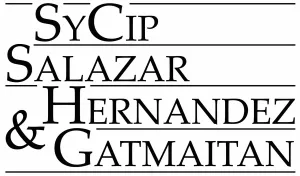The Energy Regulatory Commission (ERC) has revised its Rules of Practice and Procedure (Revised RPP) which govern the proceedings before the ERC through the issuance of ERC Resolution No. 01, Series of 2021.1 The Revised RPP took effect on April 13, 2021 (or 15 days after its publication in Business Mirror, a newspaper of general circulation). It allows the ERC to adapt to changes brought about by the COVID-19 pandemic and modernizes the ERC rules of procedure. It amends the RPP issued on June 22, 2006.
Under Republic Act No. 9136 or the Electric Power Industry Reform Act (EPIRA), the ERC is tasked to "promote competition, encourage market development, ensure customer choice and penalize abuse of market power in the restructured electricity industry." The ERC has jurisdiction over "all cases contesting rates, fees, fines and penalties imposed by the ERC in the exercise of the [EPIRA-granted] powers, functions and responsibilities and over all cases involving disputes between and among participants or players in the energy sector."
A. Electronic Proceedings
The Revised RPP incorporates ERC Resolution No. 09, Series of 20203 (E-Filing Guidelines) which provides for the guidelines governing electronic applications, filings, and virtual hearings before the ERC.
"Filing" refers to the submission of pleadings, applications, comments, petitions, protests, motions, notices, compliance, and other similar papers in accordance with the RPP or the E-Filing Guidelines.4 In this regard, the Revised RPP provides, among other things, that:
- All pleadings, motions, and other similar papers may also be filed electronically pursuant to the E-Filing Guidelines issued by the ERC;5
- Pleadings shall be written in English or Filipino, typewritten or printed, and filed with the Central Records Division, or via e-mail through the official e-mail addresses of the Central Records Division;6
- The public consultation necessary before finalizing the language of a proposed new rule or amendment to, or repeal of an existing ERC rule may be conducted through video conferencing;7 and
- Unless otherwise ordered by the ERC, service shall be made upon a party or upon its counsel-of-record, either by personal service, registered mail, or private courier delivery, to its principal place of business or residence, or to the address specifically stated by the party in the application, petition, complaint, or intervention. Service may also be made through e-mail.8
The Revised RPP also allows consumer complaints to be filed with the ERC electronically9 and the threshold for complaints to be heard through the rules of summary procedure has been raised from PhP200,000 to PhP400,000.10
B. Spotlight on New Provisions
1. Prohibited Pleadings
Rule 5, section 7 of the Revised RPP is a new provision that enumerates the pleadings, motions, and petitions that are prohibited. These are as follows:
- Motion to Dismiss, except on the grounds of lack of jurisdiction, Res judicata, prescription, and litis pendentia;
- Motion for Bill of Particulars;
- Petition for Relief from Judgment; and
- Such other pleadings, motions, and petitions of similar nature intended to circumvent this Section.
2. Formal Amendments
Under the Revised RPP, a defect in the designation of the parties and other clerical or typographical errors may now be summarily corrected by the ERC at any stage of the proceedings, motu proprio or upon motion of any party, provided that no prejudice is caused thereby to the adverse party.11
3. Transfer of Interest: Substitution
The Revised RPP clarifies what will happen in case of any transfer of interest. Specifically, a complaint, petition or application shall only be continued by or against the original party, unless the ERC, motu proprio or upon motion of the original party, directs the person to whom the interest is transferred, to be substituted in the action or be joined with the original party.12
4. Procedure for Hearings
The Revised RPP now allows hearings to be conducted through video conferencing pursuant to the E-Filing Guidelines issued by the ERC.13 In case the hearing is conducted through video conferencing, the applicant or petitioner shall host the virtual hearing in the locality within the affected area as the designated venue for the conduct thereof and ensure that the same is open to the public and that their participation shall not be impaired.14
The Revised RPP also allows the cancellation of hearings due to force majeure or suspension of work in the government. "In the event that the hearing is cancelled due to force majeure, or declaration of suspension of work in the government, the [ERC] shall issue a new notice of hearing. The applicant or petitioner must publish the new notice of hearing once (1x) in a newspaper of general circulation within the franchise and/or affected areas, at least ten (10) days before the scheduled hearing, and must furnish a copy thereof to the Offices of the Governor, Mayor, and the Sanggunian concerned within the franchise and/or affected areas, to the end that persons who may be affected by the application or petition shall be apprised thereof and will have an opportunity to file their intervention, comment, or opposition thereto."15
Further, the Revised RPP provides that postponements or continuance of hearings may be allowed by the ERC or presiding officer upon good cause shown.
The Revised RPP has also deleted the provision on rebuttal and sur-rebuttal during the hearings.
5. Request for Additional Documents
Notwithstanding the provisions on the reopening of cases in the Revised RPP, the ERC may require additional documents from the parties after the submission of their formal offer of evidence, or after a motion for reconsideration is filed by any party. Such documents, copy furnished all parties, shall be considered by the ERC in the evaluation of the application or petition, or resolution of the motion for reconsideration even absent a formal offer.16
6. New Procedure for Non-Rate Cases
Rule 20 of the Revised RPP provides for the procedures and requirements for particular cases before the ERC. The Revised RPP introduces a catch all provision for applications for approval of other rate and non-rate cases that do not explicitly fall under the ones previously provided. All other applications within the jurisdiction of the ERC shall be filed for approval pursuant to the relevant rules and regulations of the ERC.17 The application shall be accompanied by documents and information as specified in the relevant rules and regulations of the ERC, or as may be required, when necessary.18
Footnotes
1 Please see https://www.erc.gov.ph/Files/Render/issuance/30791 and https://www.erc.gov.ph/Files/Render/issuance/30794 for reference.
3 Please see https://www.erc.gov.ph/Files/Render/issuance/30582 for reference.
4 ERC RPP, Rule 2 Section 1 (l).
5 ERC RPP, Rule 3 Section 7.
6 ERC RPP, Rule 5 Section 1.
7 ERC RPP, Rule 21 Section 4.
8 ERC RPP, Rule 10 Section 2.
9 ERC RPP, Rule 20 F. Section 4.
10 ERC RPP, Rule 17 Section 2 (a) (1).
11 ERC RPP, Rule 7 Section 3.
12 ERC RPP, Rule 8 Section 5.
13 ERC RPP, Rule 18 Section 2.
14 ERC RPP, Rule 18 Section 4.
15 ERC RPP, Rule 13 Section 4.
16 ERC RPP, Rule 19 Section 5.
17 ERC RPP, Rule 20 E. Section 1.
18 ERC RPP, Rule 20 E. Section 2.
The content of this article is intended to provide a general guide to the subject matter. Specialist advice should be sought about your specific circumstances.


